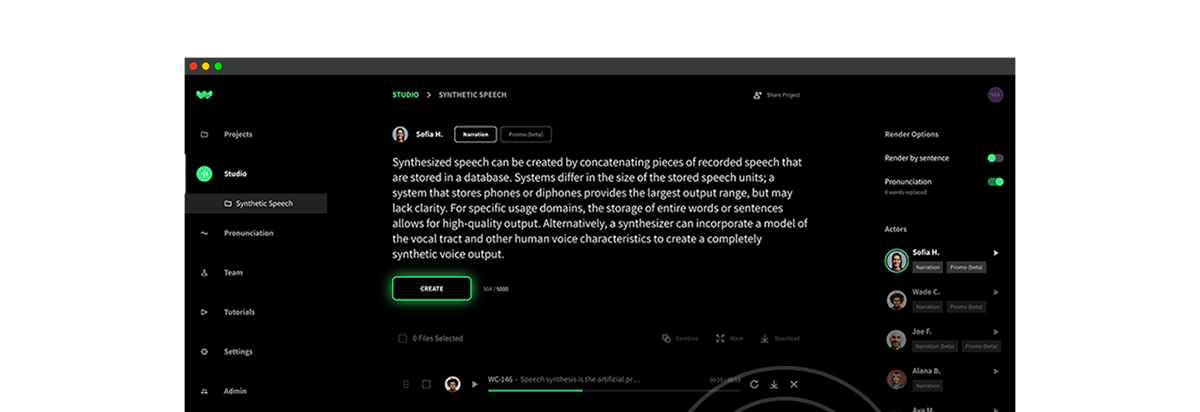Audio by James B. using WellSaid Labs In the competitive world of luxury branding, storytelling emerges as a strong contender for real differentiation. Through compelling narratives, luxury brands can truly
Audio by Vanessa N. using WellSaid Labs In this era of relentless digital innovation, we’re no longer just spectators but participants in an AI-generated world where our own voices and
Audio by Cameron S. using WellSaid Labs Ever notice how everyone claims they “have a face for radio”? That cheeky quip hints at the magic of radio: its power to
Audio by Lulu G. using WellSaid Labs The crisp autumn air is charged with a certain kind of magic that only comes around once a year. As the orange leaves
Audio by Ben D. using WellSaid Labs Dive into an extract from our white paper, Make Generative AI Work For You, Using Digital Scalable Voice. Here, we explore the intricate
Audio by Diarmid C. using WellSaid Labs Not too long ago, the heartbeats of marketing were the rhythmic hum of printing presses and the familiar jingles on radio broadcasts. Fast
Audio by Marcus G. using WellSaid Labs Step into the realm of wonders where voices come alive, shaping stories with wit, intelligence, and an enchanting touch. We call it TTS.
Audio by Chase J. using WellSaid Labs If the mere mention of “sonic identity” leaves you breaking into a cold sweat or scratching your head in bemusement, you’re not alone.
On a rainy day in 1950, Alan Turing, the godfather of modern computing, served the world a piping hot plate of intellectual intrigue: a test designed to decipher if a
Just as you wouldn’t send a clown to negotiate a business deal or deploy a ballerina to fix a leaky faucet, the world of video production requires the right talent
More and more, the tech community is talking about Generative AI. But what is the business case for it, specifically for Generative AI Voice? And what is the best way
According to Statista, advertisers spent more than $3 billion on digital audio advertising in the U.S. in 2020. That’s a number that’s been consistently on the rise for the past

© WellSaid, Inc. 2024
All rights reserved.